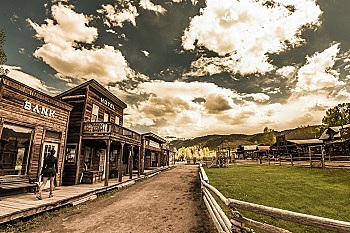There's No Such Thing as Deregulation

“Deregulation” frequently conjures up the image of rich CEOs freed to do as they please without restraint or punishment like some sort of corporate Wild West. The regulation/deregulation dichotomy creates the impression that regulated markets are stable and orderly whereas deregulated markets are chaotic and wild.
“Deregulation” frequently conjures up the image of rich CEOs freed to do as they please without restraint or punishment like some sort of corporate Wild West. The regulation/deregulation dichotomy creates the impression that regulated markets are stable and orderly whereas deregulated markets are chaotic and wild – the “anarchy of production” as Karl Marx might have described it.[1]
For instance, Smith criticized the government-enforced “corporation” system of his time for creating a lax regulatory environment. Corporations, at the time, were much like today’s occupational licensing boards – government-backed corporations of certain trades which acted as gatekeepers and required young workers to study as apprentices for years before they could strike out on their own. The stated intention behind the corporation system was that such corporations were necessary to maintain and regulate quality in the industry.
But as Smith argues, “the pretence that corporations are necessary for the better government of trade, is without any foundation” (WN, 146).[2] As Smith continues, “the real and effectual discipline which is exercised over a workman, is not that of his corporation, but of his customers. It is the fear of losing their employment which restrains his frauds and corrects his negligence. An exclusive corporation necessarily weakens the force of this discipline.”
The market price of every particular commodity is regulated by the proportion between the quantity which is actually brought to market, and the demand of those who are willing to pay the natural price of the commodity, or the whole value of the rent, labour, and profit, which must be paid in order to bring it thither. (WN, 73)
But though the market price of every particular commodity is in this manner continually gravitating, if one may say so, towards the natural price, yet sometimes particular accidents, sometimes natural causes, and sometimes particular regulations of police, may, in many commodities, keep up the market price, for a long time together, a good deal above the natural price. (WN, 77)
Questions for Discussion:
References
[1] Marx, Karl (1936). Capital: A Critique of Political Economy. Translated by S. Moore and E. Aveling. Modern Library.
[2] Smith, Adam (1976). An Inquiry into the Nature and Causes of The Wealth of Nations. Edited by R.H. Campbell and A.S. Skinner. Oxford University Press.
[3] For modern research on occupational licensing, see: Kleiner and Krueger (2013). “Analyzing the Extent and Influence of Occupational Licensing on the Labor Market,” Journal of Labor Economics, 31: S173-S202 ; Kleiner and Vorotnikov (2017). “Analyzing Occupational Licensing Among the States,” Journal of Regulatory Economics 52(2): 132–158.
[4] Hayek, F.A. (1988). The Fatal Conceit: The Errors of Socialism. University of Chicago Press.
Comments
Regarding your question 4:
I think one thing that Smith would have argued as part of his discussion on justice that acts as an ultimate check on the behavior of market participants is the ultimate veto both sides have in a bargain: both sides can say "no" to a deal.
If the buyer does not like what the seller is offering, the buyer can say "no." The seller can do nothing about it (except offer a better deal), even if he is a monopoly.
If the seller does not like what the buyer is offering, the seller can say "no." The buyer can do nothing about it (except offer a better deal), even if he is a monopsony.
Thanks for the comment, Jon. That's a good observation and I think it speaks to one of the virtues of market "regulation." Since every participant has the power to veto an exchange, the local knowledge of every participant matters. With government regulation, only the knowledge of the regulators and the regulated matter.